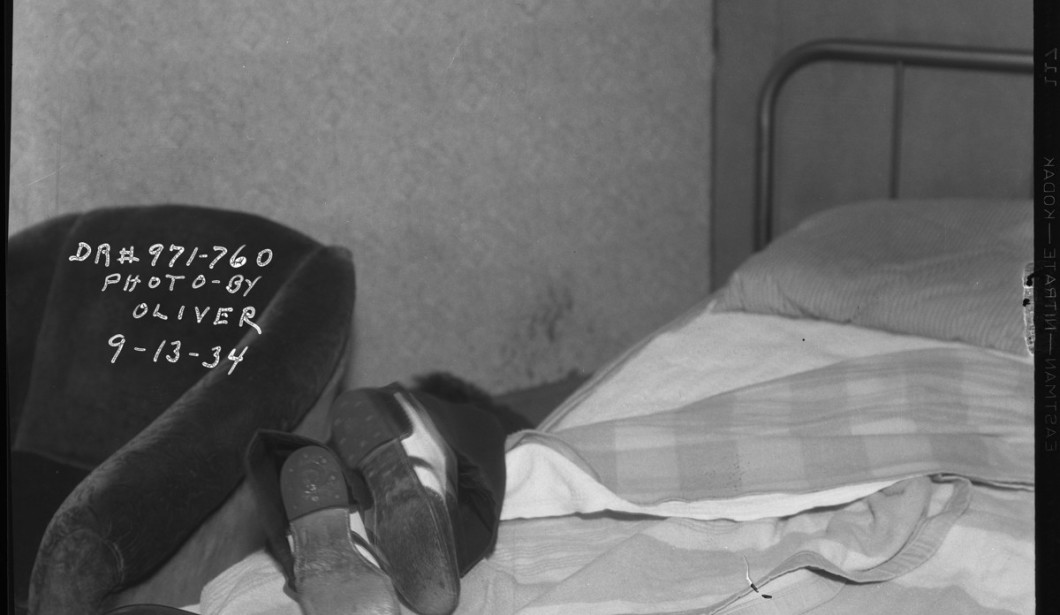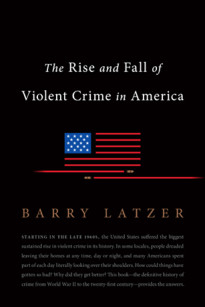We are persistently told by the progressive political class that economic hardship and inequality are the principle causes of America’s social problems, including crime. Not so, says Barry Latzer, Professor of Criminal Justice at CUNY.
Latzer, author of a new history of violent crime, aptly titled The Rise and Fall of Violent Crime in America, contends that there is no ironclad relationship between economics and crime.
On the contrary, at both the macro and micro levels, crime is influenced by a variety of factors often independent of economic circumstance.
Most violent crime is not motivated by economic issues at all. It is not motivated by money. It is motivated by anger, by disputes, by conflicts between individuals.
As I learned during an in-depth interview with the author, this relationship proved to be the most surprising finding in the book. Here is what Latzer had to say on the matter:
I guess the most startling [fact] to me was the lack of a consistent relationship between economics and violent crime. When I was a young professor — when I was studying these matters — it was always told to us that there is this huge relationship between poverty and crime, between economics and crime. And I sort of accepted this like everybody else. When I did this book, I learned that the issue is more complicated than we thought.
First off, as I said earlier, general economic conditions and violent crime are not consistently related.
Example: The Great Depression, in the early 1930s crime soared. After 1934 with the Depression still on and people widely impoverished by it, crime begins to go down, and keeps going down for the remainder of the ’30s decade.

Second example: 1960s, biggest crime boom in our history, and the economy is great. Unemployment is under four percent (4%), there’s no inflation, the economy is fizzing and violent crime soars.
Third example, and this one you know everyone’s going to remember: 2007–2008 the Great Recession. And what happens? Crime continues to fall. So [there is] no consistent relationship between general economic conditions and violent crime.
So then I ask: Well why would that be? Why should that be? That’s sort of contrary to everything we learned, especially since it is true that poor people tend to do much more violent crime than more affluent people. So if you increase the number or decrease the number of poor people, wouldn’t that have an impact on violent crime? And the answer is: Sometimes and sometimes not.
But most violent crime — and here’s the key to the question — most violent crime is not motivated by economic issues at all. It’s not motivated by money. It’s motivated by anger, by disputes, by conflicts between individuals.
This is true for murder, this is true for assault, and it’s partly true for robbery because robbery is in part motivated by economics — that is, by the desire to get wealth or valuables from the victim. But it’s also partly motivated by a desire to impose violence on the victim because robbery is a kind of hybrid of violent crime and pecuniary crime.
So, for much of violent crime, for homicide, for assaults for robberies in part, and for rape as well for example, pecuniary interests, economic considerations, are not the drivers. And therefore, the rises or falls in the economy really don’t have any impact on those offenses. They might have an impact on larcenies, on thefts, maybe on burglaries — which are purely pecuniary in motive — but not on homicides, murders on assaults or even much on robberies.

During our interview, we also had the chance to discuss the stigma around discussing race and crime that led one publisher to tear up its book contract with Prof. Latzer, the correlation between war and violent crime, the relationship between age and crime and the so-called “Baby Boom Bulge,” why black crime rates rose even while blacks in America experienced great socio-economic gains, and a great deal more.

